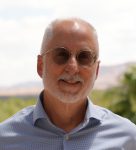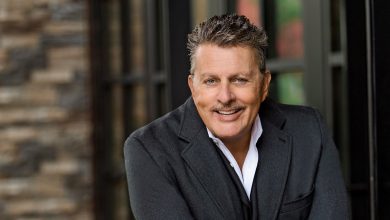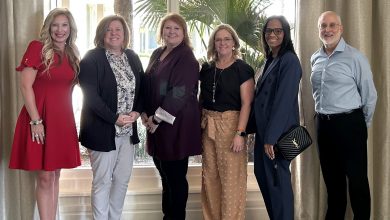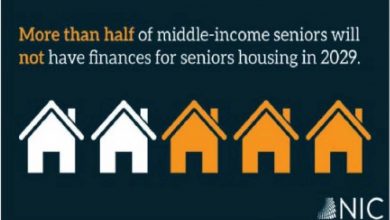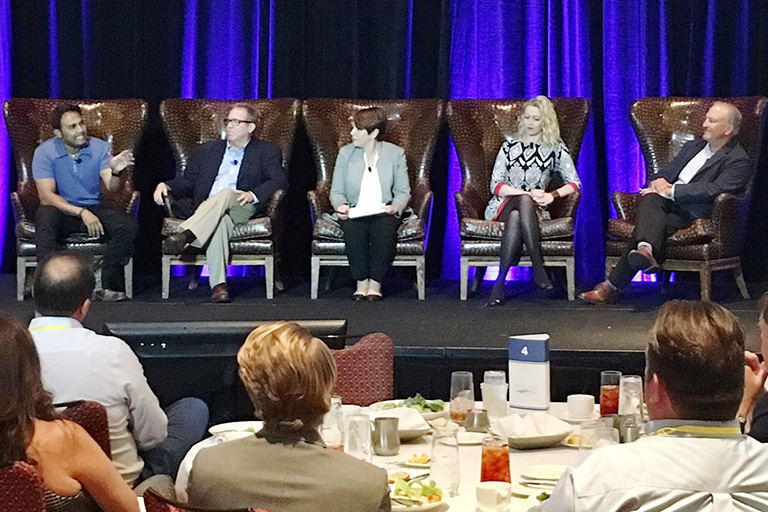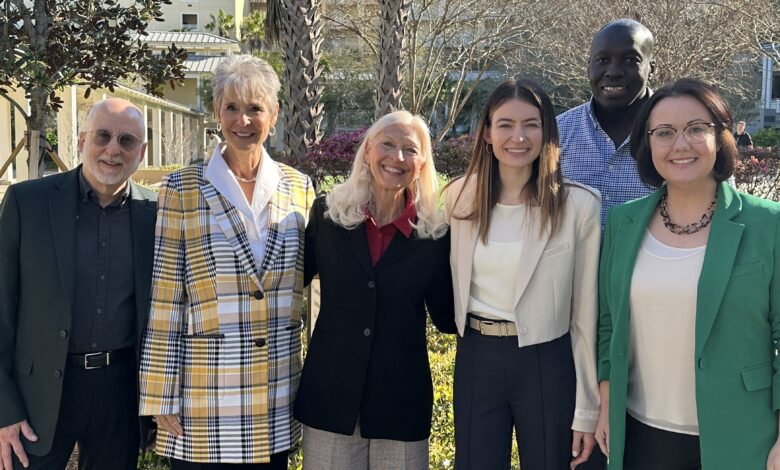
HEALTHTAC East 2025 Panel: Expectations! Innovations & Methods to Ensure a Promising Future for Dementia Care, Part 2
By Jim Nelson | April 22, 2025
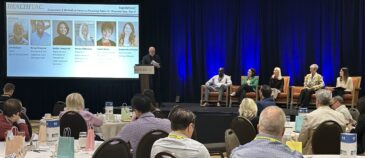 AMELIA ISLAND, FL — HEALTHTAC and Senior Living News recently held our annual east coast executive event, hosting senior living leaders from all over the nation. Among the panels during the two-plus-day event, was one that discussed dementia care and a relatively new Medicare program that could make life a lot better and easier for residents living with dementia and for the teams at IL, AL, and memory care communities.
AMELIA ISLAND, FL — HEALTHTAC and Senior Living News recently held our annual east coast executive event, hosting senior living leaders from all over the nation. Among the panels during the two-plus-day event, was one that discussed dementia care and a relatively new Medicare program that could make life a lot better and easier for residents living with dementia and for the teams at IL, AL, and memory care communities.
The panel was a call to action, positing that brain health isn’t just a healthcare issue — it’s a human issue, and it impacts every one of us. The panelists were Brian Browne, president/CEO of Cognitive Care Management; Katie Campbell, regional vice president of operations for HMR Veterans Services; Verna Chisman, the president of Allure & Wellness Management Services; Linda Kuhn, director of sales and marketing for Fountain View Village; and Sam Paider, health center administrator at Trillium Woods.
In part 1 of this article, we learned, among other things, why it’s so important to make the same investment in our brain health as we do our hair, skin, and physical wellbeing, why when it comes to dementia prevention is the key, and how a skilled nursing facility for veterans in Tyler, Texas, houses its residents in 10 homes of 10 veterans apiece and its memory care in two separate homes where everyone has their own room.
Brian Browne has previously spoken with Senior Living News about the GUIDE program through Medicare, and knowing of the importance of the program we asked him to explain how it can help.
“Medicare implemented the GUIDE program to case manage those with dementia,” Browne responded, “hopefully in its earliest stages, but again, to see them through. This will give [residents] a better quality of life, reduce the cost and expense, and also surround and support caregivers.
“The GUIDE program was an RFA (request for application) in 2023,” he added, “it got awarded in early 2024, the first recipient could start to unroll the program in July 2024, and new programs got to unleash their program as of January 2025. So, it’s still relatively new.
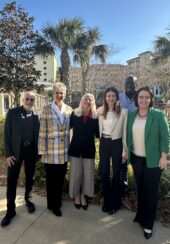
“This program allows folks a true roadmap through dementia,” Browne continued, “The first aspect is that you don’t have to go through the traditional route of your PCP (primary care physician), which has been the juggernaut in dementia care and diagnosis. PCPs are wonderful at cough, cold, flus, but they’re not particularly skilled at identifying and diagnosing dementia. Hence, the big cost in the disease is the massive underdiagnosis — only 50 percent of dementias are actually diagnosed, and when diagnosed, people are typically in moderate or late-stage dementia. We have it completely wrong.
“This program is really encouraging everybody to be a participant,” Browne continued. “Why? Because people can self-refer into the GUIDE program. They don’t need their PCP. You have to be a Medicare Part B or Medicare Part A recipient to be part of this program. If you are on Medicare Advantage, you are not eligible because Medicare has already given money to Advantage plans to manage chronic care illnesses.
“So how does this open the door for communities?” Browne asked rhetorically. “Well, communities can partner directly with GUIDE participants, meaning that everyone in a community, whether they’re an IL or AL, can partner and self-refer if they believe anybody is showing signs of dementia. It’s good news every which way, and here’s why: because the first part of the GUIDE program is that there is this attestation — we have to attest that somebody has dementia, meaning that they will go and get tested. If they have dementia, they will be case managed immediately, at no cost to the facility or community, no cost to the Medicare provider, no cost to their family. If they don’t have dementia, well, hallelujah, you don’t have dementia; you can start living a better life and we can find out what is causing your cognitive decline. So, there are no real losers here as soon as they’re identified.
“The goal of the GUIDE program is to keep people in IL and AL, and out of long-term memory care or anything like that,” Browne continued. “So, it’s there to people in your sweet spot making you money, but they’re being managed by a professional care of people within your facility. It’s a program designed to fully case manage people with all of the risk factors to be able to discern who really has dementia and who has what we call pseudodementias, or other risk factors. It’s designed to bring health and clarity to the community level. And all you senior living communities have to do is partner with a GUIDE participant. We [Cognitive Care Management] have a GUIDE program, and we have one of the 10 percent of GUIDE programs that are virtual in nature, so we can be everywhere and nowhere at the same time. One of the weaknesses that we found with the GUIDE program is that there are only about 345 GUIDE recipients across the entire United States. There aren’t a lot, but the virtual programs [are] able to provide the technical assistance and embed right into your communities. This is a solution that you can get your arms around, that hits all of the pain points in terms of looking at caring for your population in a manner that we know will be successful, raising the way that you treat people, but also lowering costs at the same time. There’s also benefits for caregivers, like caregiver education, and we take care of a whole lot of other ancillary things as part of the GUIDE program. And the key part of this is it’s at no cost to anybody to operate.”
At this point, the audience was afforded the opportunity to ask questions.
“What’s one thing we could take out of our diet,” one woman asked, “or one thing we should put into our diet?
“Processed food,” Browne replied, “anything that has more than three ingredients is starting to get to a processed level. You want to eat foods in [their] most complete forms. And something to add to your diet is healthy fats, like avocados, fatty fish, things along those lines; those are really neuroprotective in nature.”
With the news of Gene Hackman’s passing still relatively fresh on everyone’s minds, Kuhn underscored the importance of spreading the word about dementia prevention and the GUIDE program.
“I had an experience sitting in a physician’s office where I was waiting for my appointment,” she said, “and a woman came in very distressed and went to the counter and said, ‘I need help. My husband has dementia and he’s different.’ The best physician’s office could do for her was schedule an appointment with the primary care physician two weeks later. We cannot have another Gene Hackman and Marie Hackman issue. We need to be proactive, and we need to get this information out there and sell it as an expert in the industry, and we can help with the longevity and the big picture of what health really is.”
The final question went to Chisman: How is this panel conversation a call to action?
“This is not just a conversation for us within this room,” said Chisman. “It is a national endeavor. If we as leaders don’t step up and take charge and speak on behalf of our residents and for the dementia and the process of preventive measures, then it’s never going to go anywhere. We’re all going to fall back into the continuation of the growing need for dementia care. It’s not a health issue, it’s a human issue, and it’s going to impact every one of us in this room, either directly with our loved ones or within our work, so we need to take charge.”
